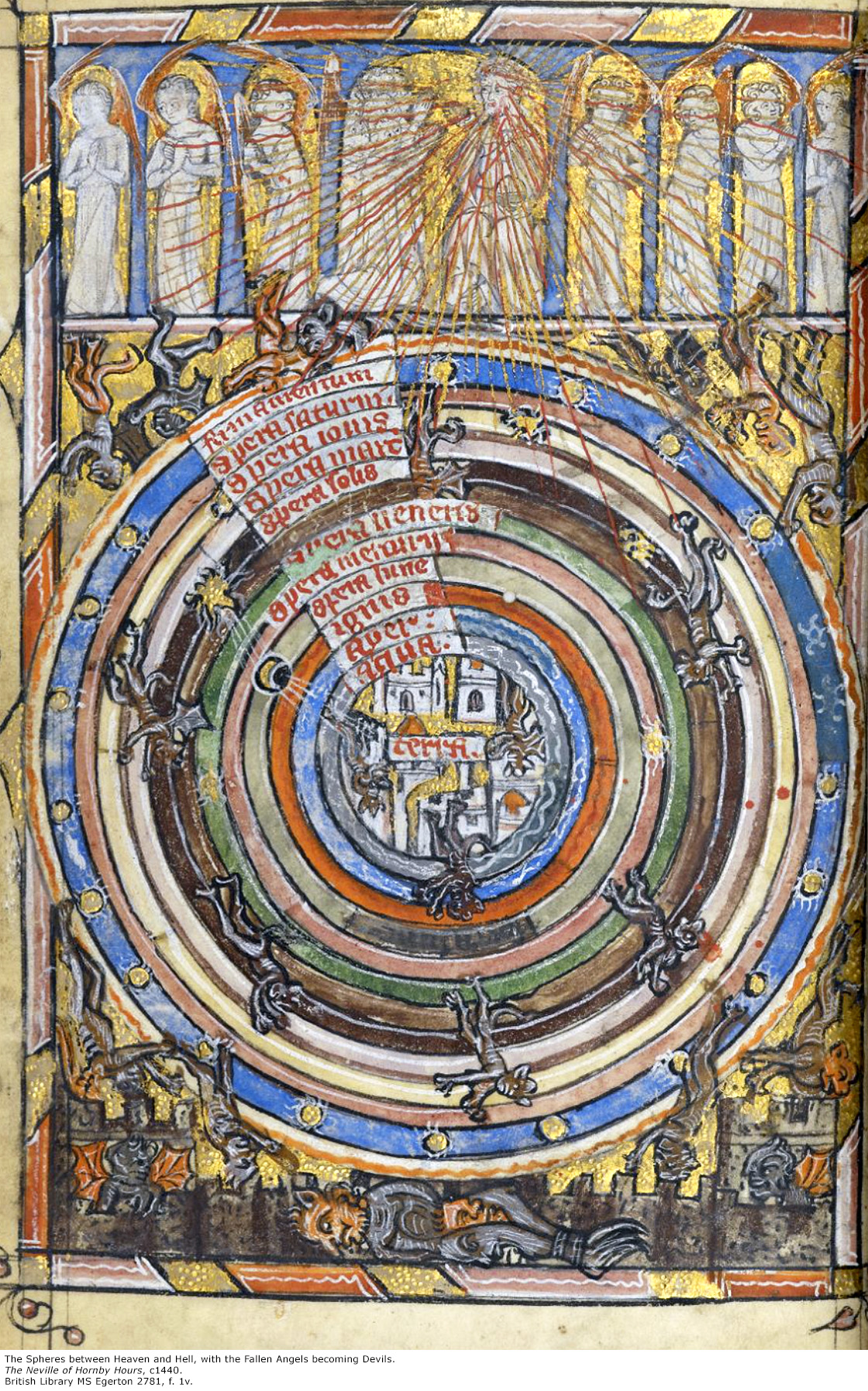The magnitude of the disaster is apparent to me. My work has escaped from my control, and I have produced a monster: an immensely long, complex, rather bitter, and very terrifying romance, quite unfit for children (if fit for anybody).Of course, that's Tolkien speaking of The Lord of the Rings, and my own little monster isn't remotely comparable to LOTR (I'm not even thinking about trying to imagine creating something of that standing). But all the same, I already feel like my little monster of a project is becoming immensely broad, complex, and (at least to me) a little terrifying. I can't wait to get it reined in!
So what am I actually wanting to do this project on? Well, through my various English classes at BYU, few concepts have captured me so distinctly as Renaissance cosmology. During the early Renaissance, people subscribed to a Ptolemaic universe view with the earth at the center and various "spheres" extending layer by layer beyond it. Shrek would say it's a lot like an onion, but I prefer to think of it like this:
Okay, I confess ... I didn't draw it. But it is a really cool picture. And not only did Renaissance people try to draw their universe beautifully, they tried to make the concept itself beautiful. I could spend all day thinking about how gorgeous it is and studying all of its intricacies (in spite of the reality, which is that the structure of the Ptolemaic universe is pretty much entirely scientifically wrong). I wish I could make a project of going to London and just spending all day thinking about it and studying it.
But ... in the spirit of linking this gorgeous idea back to literature and taking advantage of the modern London/England/UK I'm going to be seeing, I'm going to try to do something more. Even after Copernicus debunked Ptolemy's geocentric universe scientifically, people weren't entirely ready to let it die. Their cosmology wasn't simply a scientific idea about the structure of the universe—it taught them about God, religion, society, family, and man himself. Many held on to the precepts and it was used as a literary device for a long time after most people had accepted Copernicus' heliocentric view, even into the Enlightenment and beyond. What I want to look at is how these ideas impact modern thought. How might the ideas of Renaissance be physically preserved on canvas, in sculpture, in stained glass, in architecture? To answer these questions, I plan to visit a number of churches and cathedrals in England that would have been built around the 15th and 16th centuries.
I've had an idea bouncing around in my head for about three days now that I think could potentially be a really good glue for my literature vs. modern world problem, and that is the following question. How does believing that God has a specific location (relative to one's own) change their perspective of or belief in God? The people in the Renaissance believed that God was the "geometer" of their universe, and that He lived in its outermost layer—the Primum Mobile. I suspect there'd be a lot to find about how man's physical relationship to God impacted the perception of his individual personal relationship to God. Similarly, I think I could interview a lot of people on the subject, and see how those ideas—both of where God is existing and how they view their relationship to God—compare with those of the Renaissance.
Anyways, I've blabbered on enough about my potential plans/intentions for London at this point (probably to excess), but that's where I'm at right now!


No comments:
Post a Comment